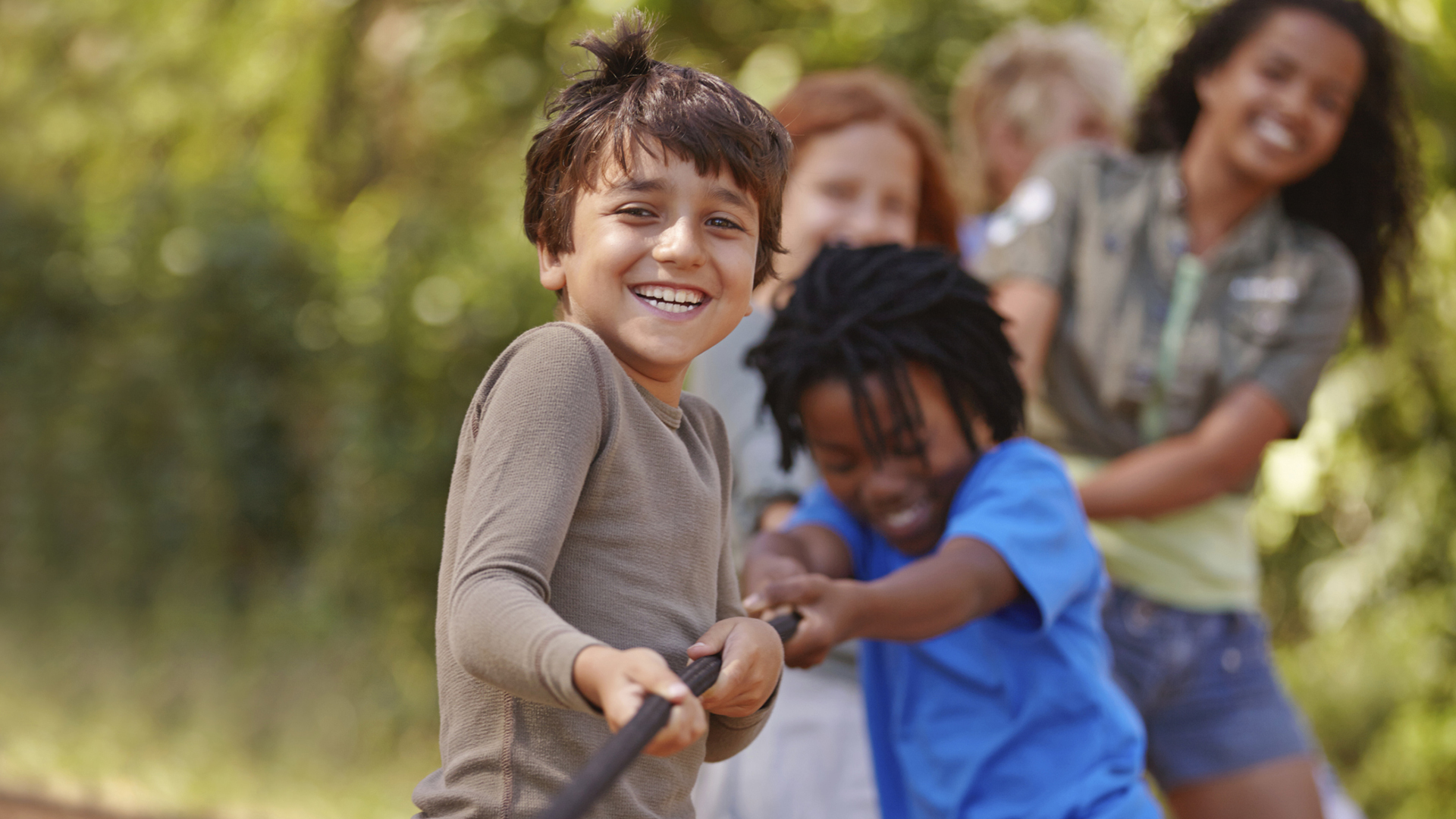The right age for sleepaway camp
Summer camp is a positive way for kids to gain life skills and independence, but not all campers are gung ho about getting away. Although your own summer camp memories make you giddy, be wary of pushing your kiddo to head off to summer camp before he or she is ready. "There appears to be no 'magic age' at which every child becomes ready for sleepaway camp," shares Dr. Timothy M. Houchin of 360 Mental Health Services. "Writers at The Camp Experts suggest the average age for sleepaway camp readiness is 8 years old, although the YMCA and other organizations offer sleepaway camping experiences for children as young as 6 years of age. The American Academy of Pediatrics has even chimed in on sleepaway camping by indicating that only a parent or caregiver can ultimately decide whether a child is ready for sleepaway camp."
Should your teen become a Junior Camp Counselor? >>
Normal nerves or anxiety issue?
You think your youngster is ready to experience the adventures of the great outdoors, but suddenly your little camper is making excuses not to go. So, how can you determine if your child is having normal pre-camp jitters or has a severe case of anxiety? "Being nervous about summer camp is really normal for kids," explains Kim Blackham, Licensed Marriage and Family Therapist. "Parents can know that fear may need more attention when the child cannot be comforted and the anxiety begins to interfere with daily life." For parents of kids who seem fearful on a consistent basis, it's important to discuss your child's anxiety with your pediatrician.
Tips to squelch summer camp anxiety
When your kiddo has a case of the butterflies about summer camp, you can take a few steps to help ease uncertainties:
- Get your child involved. In addition to having your youngster help pick the camp, you can, "Visit the camp or look at pictures online to familiarize your child. Learn the camp's traditions. Tell stories about your own childhood memories at camp, and stick to the fun tales," advises Melissa Deuter, psychiatrist in San Antonio, Texas.
- Don't minimize concerns. Whether a few pre-camp jitters or a full-blown case of anxiety, validating a nervous child's feelings can help calm the storm. "When dealing with homesickness, a great approach is to engage your child and discuss their fears openly," offers Traci Lowenthal, Psy.D. Clinical Psychologist at Creative Insights Counseling. "Explain that most everyone misses something about home while they are away — even adults. Once kids know it's normal, they may have less fear." It's also vital that you don't let on about your own fears about letting your child head off to camp; it will only fuel the fire.
- Focus on the facts. Instead of fearing the unknown, research your child's camp of choice and help him or her focus on the schedule and rituals the summer camp has to reduce feelings of being overwhelmed. Once your kiddo is having fun, focus on those during letters and calls. "Don't give the impression your child is missing out on the fun at home," says Dr. Deuter. "Instead, ask lots of questions about what your child is doing. Asking questions increases the likelihood your child will write detailed letters in response."
- Try a practice run. For kids who have never slept away from home, the idea of being away from Mom and Dad can be even more daunting. So, before just tossing your little camper into the thick of things, try taking baby steps to show your child how fun the experience can be. "A trial run of some time away, like a sleepover with a good friend or relative, may be just thing to build their confidence," suggests Dr. Lowenthal.
- Make communication easy. Depending upon your child's camp rules, give your kiddo confidence that keeping in touch will be a cinch and pack stamps and stationary or phone cards to make communication easy. "Sending and receiving letters is often a big part of the camp tradition. Consider sending the first letter packed in your child's bag. Wish your child well and tell them how much fun they will have at camp. Resist the urge to mention how much you'll miss him or her," advises Dr. Deuter.
Discover camps for special needs and special interests >>
Although you can learn how to help your child handle summer camp anxiety, it's vital that you make the camp staff aware of any emotional or physical needs beyond homesickness your little camper may have to give your child all the support he or she needs. And, with a little guidance, nervous kids can get past the butterflies and focus on the fun sleepaway camp will bring.
Read more summer camp tips
Summer camp packing checklist
Care packages for kids at camp
How to afford to send your kids to camp
